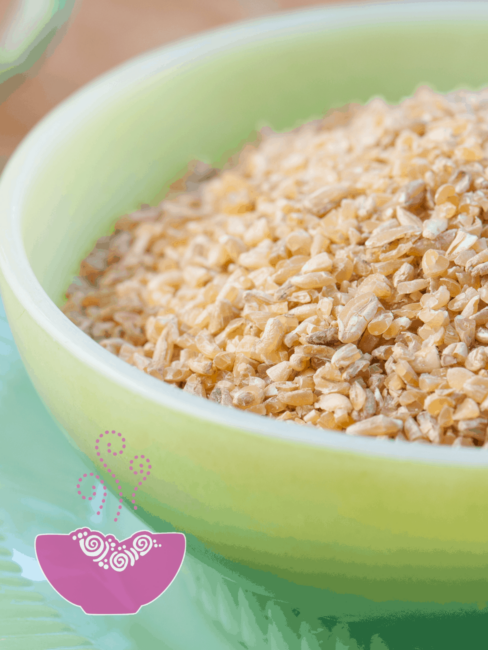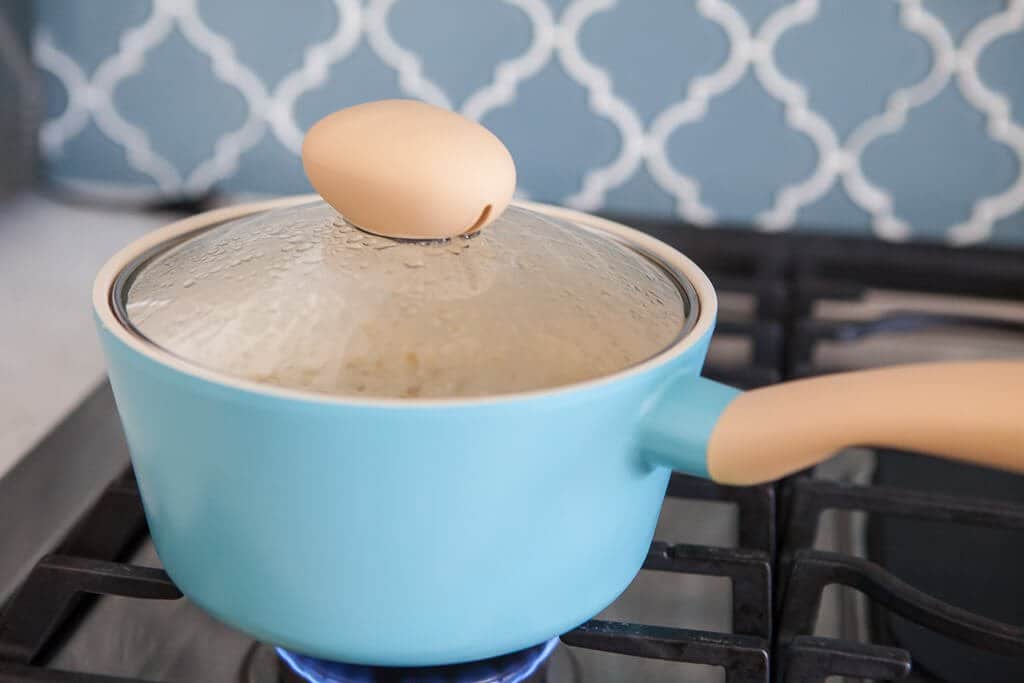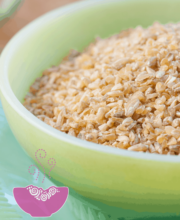[ad_1]
posted by
Starting with this easy recipe, you can make a pot of freekeh anytime you need a healthy whole grain to make the base of your Buddha bowl, soup, grain bowl, or salad!

Freekeh, pronounced “FREAK-uh,” are the chewy, nutty-tasting grains extracted from the roasting of durum wheat. They typically come in two varieties, cracked and whole. Cracked freekeh takes less time to cook than whole-grain freekeh, about 20 minutes versus 45, without compromising nutritional content.

Popular in North African and Middle Eastern cuisines, freekeh has surely wandered over to your local grocery or health food stores in the last decade, thanks to its nutritional value and culinary versatility!
See also: The Steamy Kitchen Guide to Cooking Ancient Grains
Why choose freekeh?
- It tastes AWESOME. Nutty, fluffy, and neutral overall, but not to the point of tasting like cardboard! I can’t think of a better way to get my dose of sustained energy through slow-digesting complex carbohydrates?
- Cracked freekeh cooks up fast!
- You can buy it in most grocery stores with a health food section, or in ethnic supermarkets
- It goes great in a variety of Middle Eastern and Mediterranean recipes – scroll to the bottom for recommendations!
- It’s not messy to work with. (Freekeh: 1; Quinoa: 0.)
So, now that you know the “why” behind freekeh, let’s crack on to the “how!”
3 Popular Ways to Cook Cracked Freekeh
First: breathe, because there’s very little chance you can mess up freekeh! As with quinoa, the technique is straightforward; on top of that, it’s way less messy than quinoa as the grains are slightly bigger!
Refer to the following stovetop, Instant Pot, and microwave instructions for cooking freekeh. In all cases, you’ll start with:
- 1 cup cracked freekeh
- Roughly 2 cups water or broth (adjust accordingly)
- Salt to taste
- (Optional) olive oil
1. On the Stovetop:
Bring freekeh, salt, and 2 1/2 cups water to a boil. Promptly reduce heat to the low and simmer until grains are tender and liquid is absorbed.

You can add a few spoonfuls of oil to the water for even more flavor and less chance of drying out if you’re making it ahead of time.
2. Cooking Freekeh in the Instant Pot
Combine freekeh and salt in the pot of a multi-functional pressure cooker with 1 2/3 cups water. Seal, select “Multigrain,” and bring to High Pressure over “Normal” setting.
Set timer for 10 minutes. Release pressure using the “natural” setting, then drain excess water.
3. In the Microwave
Place freekeh in a deep bowl and cover with 2 cups boiling water. Season with salt. Cover loosely and microwave on High until liquid is absorbed, 10 to 15 minutes.
To cook in a rice cooker, follow brown rice instructions.
What about whole-grain freekeh?
Freekeh recipes you won’t be able to resist

Learn how to cook freekeh on the stovetop, microwave, or in a multi-functional pressure cooker.
Course:
Side Dish
Cuisine:
middle eastern
Keyword:
buddha bowl
Servings: 4
Calories: 130 kcal
:
-
1
cup
cracked freekeh -
2
cups
water
or as specified - Salt to taste
On the Stovetop:
-
Bring freekeh, salt, and 2 1/2 cups water to a boil. Promptly reduce heat to the low and simmer until grains are tender and liquid is absorbed.
In the Instant Pot:
-
Place freekeh in the pot of a multi-functional pressure cooker with 1 2/3 cups water. Seal, select “Multigrain,” and bring to High Pressure over “Normal” setting. Set timer for 10 minutes. Allow 10-15 minutes for multi-cooker to come to pressure. Release pressure naturally, 10 to 20 minutes. Drain extra water.
In the Microwave:
-
Place freekeh in a deep, microwave-safe bowl and cover with 2 cups boiling water. Season with salt. Microwave, uncovered, on High until liquid is absorbed, 10 to 15 minutes. Check occasionally that the water does not boil over.
Stovetop variation for whole-grain freekeh: cook for 35-45 with 3 1/2-4 parts liquid for every part freekeh.
Nutrition Facts
How to Cook Freekeh – 3 Ways
Amount Per Serving
Calories 130
Calories from Fat 9
% Daily Value*
Fat 1g2%
Sodium 6mg0%
Carbohydrates 26g9%
Fiber 4g17%
Sugar 1g1%
Protein 8g16%
Calcium 24mg2%
Iron 1mg6%
* Percent Daily Values are based on a 2000 calorie diet.
[ad_2]
Source link
